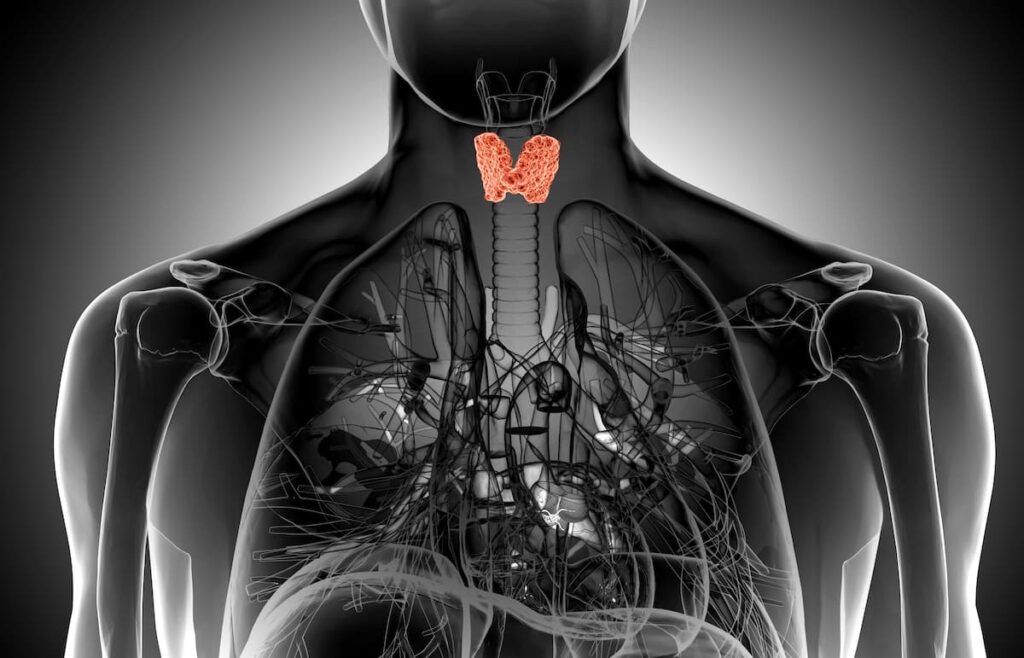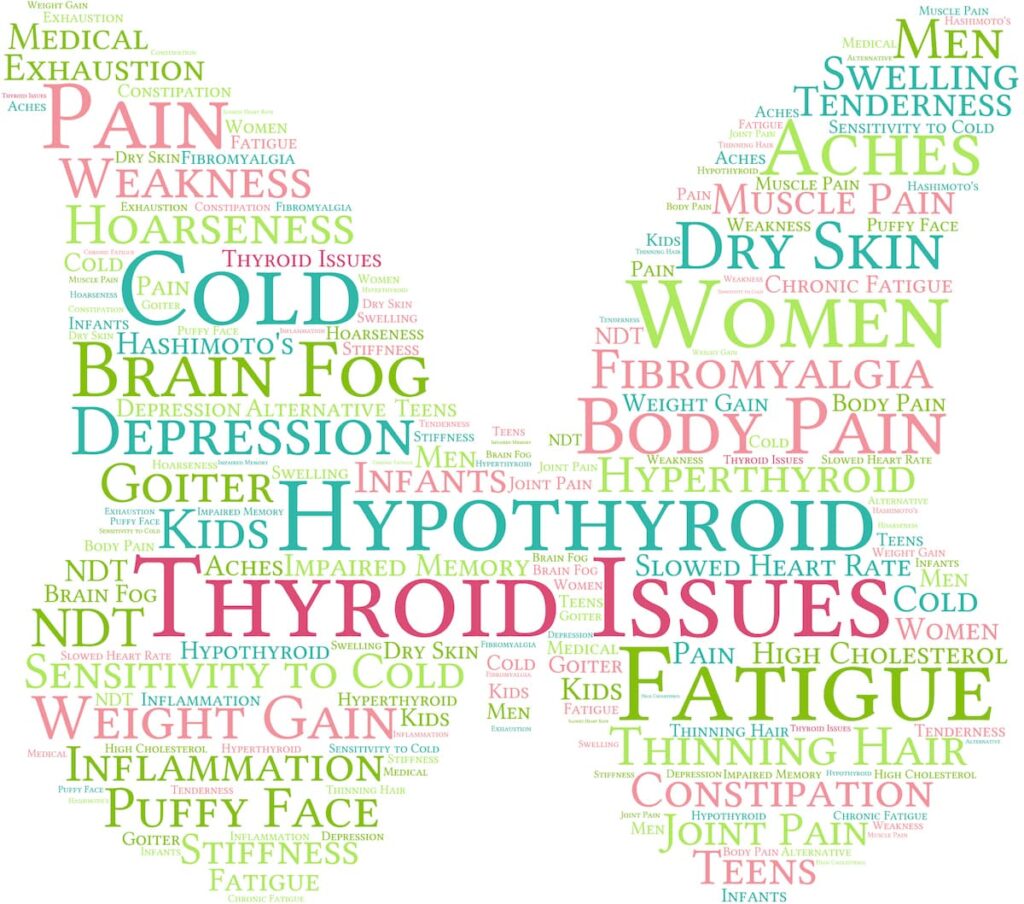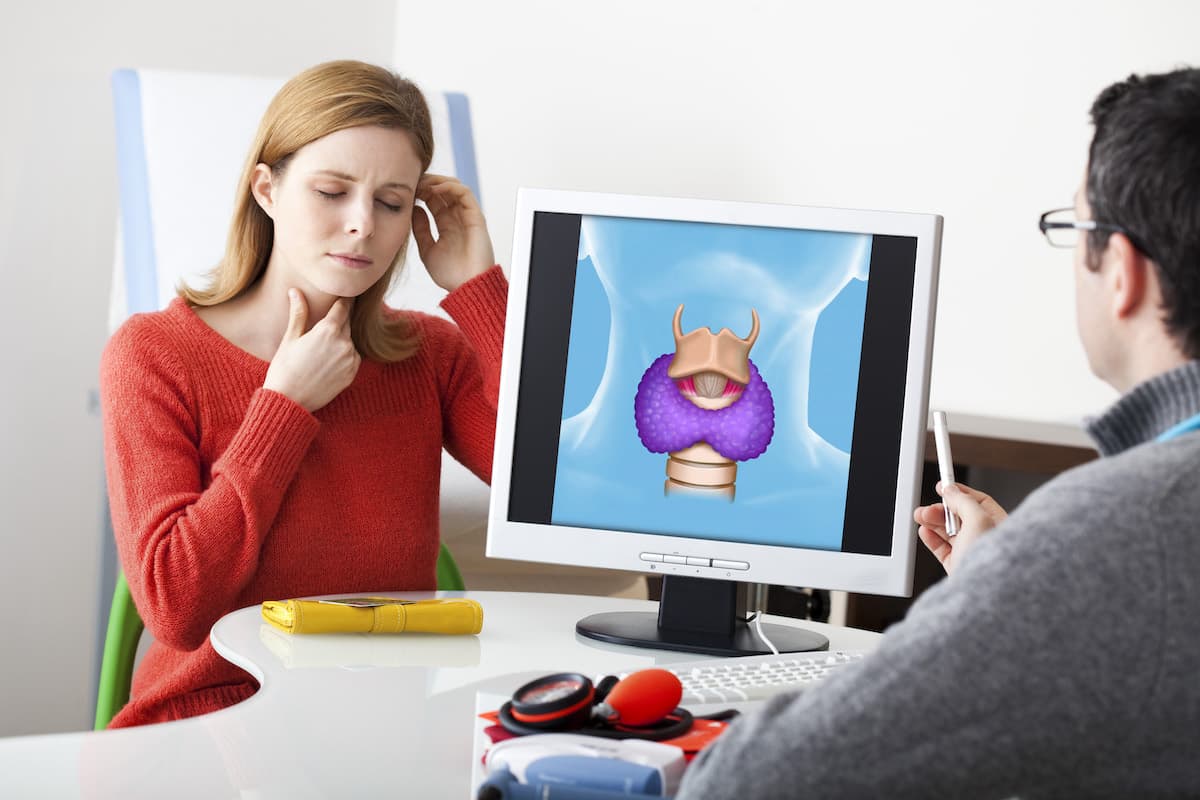How Do Thyroid Hormones Function In The Body?
Your body relies on a complex balance of hormones to work properly. Any disruption in hormone levels can have a range of negative consequences.
If you have been diagnosed with a thyroid disorder, you have probably already experienced what happens when you get too much or too little of these essential hormones. Thyroid hormones carry out critical body functions ranging from metabolism to digestion.
Maintaining normal levels of thyroid hormone is key to good health. So, how do thyroid hormones function in the body? Here’s what you need to know.
Normal Thyroid Hormone Function
The thyroid gland is located in the neck and is a key player in your endocrine system. The thyroid gland uses iodine from food to produce two major thyroid hormones; triiodothyronine, also known as T3, and tetraiodothyronine, also called thyroxine or T4.
These two hormones are produced, stored, and excreted by the thyroid gland in response to signals from your hypothalamus and pituitary gland.
The pituitary gland can sense the level of thyroid hormone circulating in the bloodstream and releases a hormone called thyroid-stimulating hormone (TSH) to tell the thyroid gland how much T3 and T4 to release.
Your hypothalamus acts to signal the pituitary gland to release more or less TSH as a signal to your thyroid. Together, the thyroid gland, hypothalamus, and pituitary gland are referred to as the hypothalamic-pituitary-thyroid axis (HPT).
The HPT’s primary function is to regulate your body’s metabolism. This is where thyroid hormones come in.
Normal thyroid hormone functions include:
- Raising or lowering heart rate
- Increasing or decreasing body temperature
- Influencing the speed of digestion
- Controlling muscle contraction
- Cell turnover
- Raising or lower metabolic rate
In daily life, there are times when you need your cells to work harder. Thyroid hormones are necessary to signal the body to speed up and get to work.
Conversely, when the body needs to slow down or rest, less thyroid hormone is secreted, and your cells slow down.
Too Much Or Too Little Thyroid Hormones
An imbalance in the amount of T3 and T4 in the body causes changes in metabolism. Your body may be less able to respond to your need for a higher or lower rate of work.
Instead of responding to your body’s needs, when you have a thyroid disorder, you get stuck over or under secreting thyroid hormones and cannot adapt to what is happening around you.
A thyroid disorder can result in too much thyroid hormone, called hyperthyroidism, or too little thyroid hormone, called hypothyroidism. Each presents with different effects on the body.

Hypothyroidism
A condition that causes the thyroid hormone to underproduce T3 and T4 is known as hypothyroidism.
Too few thyroid hormones lead to a slow down in metabolic rate. Side effects include:
- Fatigue
- Weight gain
- Feeling cold
- Feeling slow and sluggish
- Muscle weakness
- Constipation
- Dry skin
- Depression
Hyperthyroidism
Though less common, hyperthyroidism occurs when the thyroid gland secretes too much thyroid hormone into the bloodstream. This causes your metabolic rate to ramp up.
Side effects include:
- Weight loss
- Nervousness or feeling jittery and unable to relax
- Sweating
- Increased appetite
- Feeling overheated
- Palpitations and elevated heart rate
- Fatigue

Caring For Your Thyroid
A healthy balance of thyroid hormones is essential for you to feel your best. Eating a balanced diet that includes adequate iodine is one way to support your thyroid.
If you have any concerns about your thyroid, check in with your doctor for an evaluation. A skilled care provider can assess your risk and monitor your thyroid hormone function to ensure you maintain healthy hormone levels for life.



